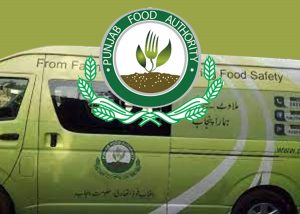
AVN Report
ISLAMABAD: The All Pakistan Textile Mills Association (APTMA) has vehemently refuted recent allegations of labour rights violations in local textile and garment sectors made by Labour Behind the Label and the National Trade Union Federation (NTUF) in their report titled ‘Hanging on by a Thread’.
The report, issued in September 2023, as cited by APTMA, has been criticised for its “biased narrative” and “factual inaccuracies” concerning labour laws compliance within the textile industry, resulting in, what the association calls, unjust scrutiny of individual firms within these sectors.
APTMA further raps the dissemination of “misleading” information to international apparel companies and prominent EU labour organisations as it raised concerns about motives conflicting with the industry’s interests, as well as the nation’s economic well-being.
These actions not only pose a threat to the international reputation of the industry but also jeopardise its access to global markets, including Pakistan’s GSP plus status with the EU, and long-standing relationships with international clients, the association stresses, urging the authorities concerned to recognise the risks posed by such unfounded allegations to the industry and the livelihoods of its workforce.
Global buyers and brands are urged to assess compliance based on credible evidence, emphasising the need for fair judgment in response to such claims.
The report shed light on the challenges faced by workers in Pakistan’s textile sector amid the ongoing economic crisis, with a staggering poverty rate of 37 percent in 2023. APTMA, alongside its members, has actively advocated for the welfare of these workers since early 2022.
The industry has been grappling with challenges such as escalating energy costs and persistent inflation, resulting in a decline in textile exports from an all-time high of $19.3 billion to $16.5 billion in FY23. APTMA says it continues to champion workers’ interests, calling for critical reforms in economic policies to rejuvenate factories and ensure job security.
The association remains committed to adhering to the government’s minimum wage standards while strictly prohibiting child labour and ensuring a secure and respectful work environment for all industry workers. APTMA emphasizes the promotion of collective bargaining and the freedom of association, which are mandatory for all Pakistani exporters.
The association cites several certifications, including WRAP, BSCI, and Fair Trade, as a testimony to the industry’s compliance with labour rights regulations, demonstrating the growing commitment to meet international and national labour standards.
APTMA says its members actively support inclusivity and women’s safety through various initiatives, such as technical training schools and programmes like Women on Wheels by Interloop Limited. The association upholds workers’ rights to associate with unions or committees, ensuring benefits such as life insurance, healthcare, and maternity leave, it adds.
It says the industry conducts proactive risk assessments to ensure workers’ health and safety, swiftly addressing any grievances that may arise. It strictly adheres to customer/brand specified codes and ISO standards, conducting regular hazard assessments through EHS committees.
APTMA emphasises the need to avoid sweeping generalisations and to refrain from associating compliant firms with the actions of a few non-compliant entities. Such generalizations not only misrepresent the considerable progress achieved in terms of sustainability, labour rights, and safety, but also pose a significant threat to further advancements in these critical areas.
APTMA reiterates its resolve to uphold industry-wide standards and safeguard its hard-earned international reputation.








